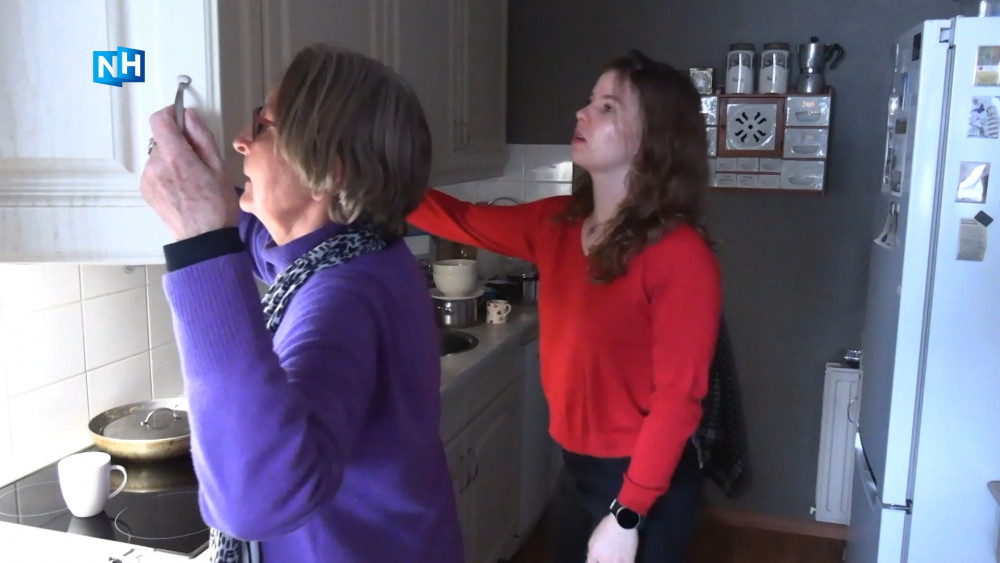What do people with early dementia need to continue their old lifestyle? This question is central to the pilot Social Approach to Dementia, in which Amstelveen is also participating. According to the municipality, the approach is very effective, because not only does the quality of life of people with dementia improve, but there are also considerable savings on healthcare costs.
–
video-caption">Amstelveners with dementia benefit from a social approach: “Higher grade for happiness” – NH Nieuws
Amstelveen is one of the four municipalities that are experimenting with the new approach. As is the case for the whole of the Netherlands, the population of Amstelveners with dementia is expected to grow from about two thousand to three thousand due to the aging population.
“It is a new form of dementia care,” says Alderman for Care and Welfare Marijn van Ballegooijen in front of the camera of media partner AAN! “The way we provide care now, it often focuses on practical support when things have already gone wrong. But people run into problems much earlier.”
Social Support
The idea behind the experimental approach is that people with dementia are socially supported from the moment their disease is revealed. “That is actually something that our regular care does not offer,” says Van Ballegooijen.
–
“I can do the housework myself, but it’s nice if I have a little help”
–
The support is provided by a professional with a care background and a student or volunteer, who regularly visits the resident with dementia for a chat or help with daily activities. Forty Amstelveners with dementia are now being supported in this way.
“Already in the early stages of dementia, we look at the social role that a client has,” said the alderman. “They were a father, or a member of a cycling club, or an athlete, a partner. And they can no longer be that. They lose their social role and that causes tension and loss of self-confidence. Their quality of life deteriorates.”
–
Anne Sytske Verboom helps Ria Sollie (74)
One of the participants in the pilot is 74-year-old Ria, who suffers from mild dementia.
Once a week Ria is visited by student Anne Sytske. For example, she accompanies Ria when shopping, to ensure that she comes home with the products she really needs. “I can do the housework myself,” says Ria. “But it’s nice if I have a little help.”
Anne Sytske receives a small compensation for her effort, but especially likes to visit Ria. “Ria always has beautiful stories to tell,” says the student. “I enjoy listening to her, and she also enjoys hearing my stories.”
–
“As the Social Approach Team, we come to people’s homes,” says Daniëlle Bogers. “Then we first get to know each other intensively, to get to know each other well, how the environment works and where they need help.” Bogers emphasizes that the work of her team is of great importance. “Because as a human being you would like to keep your freedom, and the direction, and you want to continue to be yourself.”
Happier patients and lower costs
The municipality of Amstelveen is now in the fourth and final year of the trial, and is now daring to draw up an interim assessment. The preliminary results are spectacular, says Van Ballegooijen.
“We see that people who receive this form of care give themselves a higher score for happiness and the caregiver is also happy. The moment someone goes to a care home is usually the moment that the informal carer can no longer tolerate it. And because it is at home longer, we see that they can continue to live at home longer. On average, they end up in a nursing home a few months later.”
Moreover, the approach can save a lot on healthcare costs, emphasizes the alderman. “Support costs money, but it is nothing compared to what a nursing home costs. It’s not a goal in itself, but the investment is worth it.”
Saved eight tons
To give an impression: people with dementia who receive support according to the ‘social approach’ end up in a nursing home on average eight months later than people who do not receive this support. And that has already resulted in a saving of more than eight tons (840,000 euros).
–
“We want to be able to offer it to anyone who wants it”
–
As soon as this last year is over, the final balance is drawn up. But to be able to continue the experiment, a bag of money is needed. “In terms of finances, we need to talk to The Hague,” says Van Ballegooijen. “The role of the trial is to make it clear that funding is needed. It’s really worth it, because we save money in heavy care. This care will not apply to all people with dementia, some are too sick. But we want to be able to offer it to anyone who wants it,” concludes the alderman.
—

